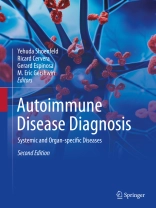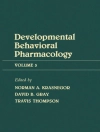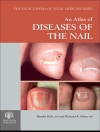This book contains the essential information required by physicians and bench scientists to understand the definition of a given autoimmune disease and its diagnostic criteria and treatment. Autoimmune diseases are a family of more than one hundred chronic, and often disabling, illnesses that develop when underlying defects in the immune system lead the body to attack its own organs, tissues, and cells. In Autoimmune Disease Diagnosis: Systemic and Organ-specific Diseases, the editors have gathered a critical review by renowned experts of more than 120 autoimmune diseases. A contemporary overview of these conditions with special emphasis on diagnosis is presented.
This edition of Autoimmune Disease Diagnosis is divided into two parts, the first covering systemic autoimmune diseases, and the second covering organ-specific autoimmune diseases. They cover all the newly approved classification criteria, such as those for systemic lupus erythematosus, antiphospholipid syndrome, several systemic vasculitis, etc. This edition also reviews newly described systemic autoimmune conditions: immune-mediated necrotizing myopathy, VEXAS, immunoglobulin G4-associated autoimmune disease, autoimmune/autoinflammatory syndrome induced by adjuvants (ASIA), and autoimmune manifestations induced by immune-therapies. Several organ-specific diseases have been added, including autoimmune alopecia and other immune-mediated dermatosis, autoimmune encephalitis, and autoimmune dysautonomia, among others. This is an essential guide to the diagnosis of autoimmune diseases for internists, rheumatologists, clinical immunologists, primary care physicians, and bench scientists.
Tabella dei contenuti
Part 1. CLASSICAL SYSTEMIC AUTOIMMUNE DISEASES.- 1. Systemic Lupus Erythematosus.- 2. Antiphospholipid Syndrome.- 3. Rheumatoid Arthritis.- 4. Diagnostic and Classification Criteria for Juvenile Idiopathic Arthritis.- 5. Adult- Onset Still’s Disease.- 6. Systemic Sclerosis.- 7. Sjögren Disease.- 8. Mixed Connective Tissue Disease.- 9. Relapsing polychondritis.- 10. Raynaud’s Phenomenon (RP).- 11. DRUG-INDUCED AUTOIMMUNITY.- 12. Polyautoimmunity and the Multiple Autoimmune Syndromes.- II. SYSTEMIC VASCULITIS.- 13. Giant Cell Arteritis.- 14. Polymyalgia Rheumatica.- 15. Takayasu Arteritis.- 16. Polyarteritis Nodosa.- 17. Microscopic Polyangiitis.- 18. Granulomatosis with polyangiitis.- 19. Eosinophilic Granulomatosis with Polyangiitis (EGPA, Churg-Strauss).- 20. Buerger’s Disease.- 21. Behcet’s disease.- 22. Susac Syndrome.- 23. Anti-Glomerular Basement Membrane disease (Goodpasture’s Syndrome).- 24. Kawasaki Disease.- 25. Cogan Syndrome.- 26. Immunoglobulin A Vasculitis.- 27. Cryoglobulinemic vasculitis.- 28. Hypocomplementemic Urticarial Vasculitis (ANTI-C1g Vasculitis).- 29. Single Organ Vasculitis.-III. IDIOPATHIC INFLAMMATORY MYOPATHIES.- 30. Polymyositis.- 31. Dermatomyositis.- 32. Sporadic Inclusion Body Myositis.- 33. Antisynthetase Syndrome.- 34. Immune-mediated Necrotizing Myopathy.- 35. Granulomatous Myositis.- 36. Eosinophilic Myositis.- 37. Eosinophilic Fasciitis.- IV. OTHER IMMUNE-MEDIATED SYSTEMIC DISEASES.- 38. Sarcoidosis.- 39. Spondyloarthropathies.- 40. Diagnostic and Classification Criteria in Familial Mediterranean Fever.- 41. VEXAS syndrome.- 42.Diagnostic criteria for Fibromyalgia modern concept.- 43. Ig G4-related disease.- 44. ASIA Syndrome.- 45. Immune adverse effects induced by checkpoint Inhibitors.- V. ENDOCRINE AND REPRODUCTIVE AUTOIMMUNE DISEASES.- 46. Hashimoto’s thyroiditis.- 47. ATROPHIC AUTOIMMUNE THYROIDITIS.- 48. Subacute Thyroiditis.- 49. GRAVES DISEASE.- 50.Postpartum thyroiditis.- 51. Autoimmune Diabetes Mellitus.- 52. Autoimmune Adrenalitis.- 53. Autoimmune Hypophysitis.- 54. Autoimmune Parathyroid Disease.- 55. Autoimmune Polyendocrine Syndromes.- 56. Endometriosis.- 57.Autoimmune Ovarian Insufficiency.- 58. Autoimmune Orchitis.- VI. HEPATOBILIARY AND PANCREATIC AUTOIMMUNE DISEASES.- 59. Autoimmune Hepatitis.- 60. Diagnosis of Primary Biliary Cholangitis.- 61. Primary Sclerosing Cholangitis: Diagnosis and Therapy.- 62. Autoimmune Pancreatitis.- VII. GASTROINTESTINAL AUTOIMMUNE DISEASES.- 63. Autoimmune Gastritis.- 64. Ulcerative Colitis.- 65. Crohn Disease.- 66. Celiac Disease.- VIII. CUTANEOUS AUTOIMMUNE DISEASES.- 67. Cutaneous Lupus Erythematosus.- 68. Pemphigus and Bullous Pemphigoid.- 69. Vitiligo.- 70. Psoriasis and Psoriatic Arthropathy.- 71. Autoimmune Alopecia.- 72. Hidradenitis suppurativa.- 73. Other Immune-mediated Dermatosis (Liquen Planus, Erythema Multiforme, Toxic Epidermic Necrolysis, Graft versus Host Reaction).- IX. CARDIOVASCULAR AND PULMONARY AUTOIMMUNE DISEASES.- 74. Autoimmune Dilated Cardiomyopathy.- 75. Rheumatic Fever.- 76. Accelerated Atherosclerosis in Autoimmune Diseases.- 77. Idiopathic Interstitial Pneumonias.- 78. Pulmonay Arterial Hypertension.- X. NEUROLOGICAL AUTOIMMUNE DISEASES.- 79. Diagnostic criteria for Multiple Sclerosis.- 80. Myasthenia Gravis.- 81. Diagnostic criteria of paraneoplastic neurological syndromes.- 82. Guillain-Barre Syndrome and Other Immune-Mediated Neuropathies.- 83. Transverse Myelitis and Optic Neuromyelitis (Devic Syndrome).- 84. Central Nervous System Vasculitis.- 85. Autoimmune Chorea.- 86. Autoimmune Sensorineural Hearing Loss.- 87. Autoimmune Encephalitis.- 88. Autoimmune Dysautonomia.- 89. Cerebellar Autoimmune Diseases.- 90. Autoimmune Disturbances of Sleeping.- 91. Autoimmune Stiff person Syndrome.- XI. OCULAR AUTOIMMUNE DISEASES.- 92. Autoimmune Retinopathies.- 93. Autoimmune Uveitis.- 94. Vogt-Koyanagi Harada Disease.- 95. Orbital Myositis.- XII. RENAL AUTOIMMUNE DISEASES.- 97. Membranous Nephropathy.- 98. Minimal change disease.- 99. Focal and Segmental Glomerulosclerosis.- 100. Membranoproliferative Glomerulonephritis.- 101. Acute tubulointerstitial nephritis.- 102.Atypical Hemolytic Uremic Syndrome.- XIII. HEMATOLOGIC AUTOIMMUNE DISEASES.-103. Autoimmune Hemolytic Anemia.- 104. Pernicious Anemia.- 105. Idiopathic Aplastic Anemia.- 106. Acquired Adult Pure Red-cell Aplasia.- 108. Autoimmune Neutropenia.- 109. Immune thrombocytopenia.- 110. Thrombotic Thrombocytopenic Purpura and Other Thrombotic Microangiopathic Hemolytic Anemias.- 111. Heparin-induced Thrombocytopenia.- 112. Autoimmune Coagulopathies.
Circa l’autore
Professor (Emer.) Yehuda Shoenfeld, MD, FRCP, Ma ACR, Reichman University , Herx zeliya, Zabludowicz Center for Autoimmune Diseases, Chaim Sheba Medical Center, Tel Hashomer. Reichman University, Israel.Yehuda Shoenfeld is the founder and head of the Zabludowicz Center for Autoimmune Diseases, at the Sheba Medical Center, which is affiliated to the Sackler Faculty of Medicine in Tel-Aviv University, in Israel. Professor Shoenfeld is also the past Incumbent of the Laura Schwarz-Kipp Chair for Research of Autoimmune Diseases at the Tel-Aviv University. Professor Shoenfeld’s clinical and scientific works focus on autoimmune and rheumatic diseases, and he has published more than 2230 papers in journals such as New Eng J Med, Nature, Lancet, Proc Nat Acad Scie, J Clin Invest, J. Immunol, Blood, FASEB, J Exp Med, Circulation, Cancer, and others. His articles have had over 130, 000 citations. (H index 130). He has written more than 400 chapters in books, and has authored and edited 35 books, some of which became cornerstones in science and clinical practice, such as ‘The Mosaic of Autoimmunity’, ‘Infections and Autoimmunity’ and the textbooks ‘Autoantibodies’, ‘Diagnostic criteria of autoimmune diseases’, ‘Covid, Autoimmunity and Post Covid’, all of which were published by Elsevier and sold thousands of copies. Professor Shoenfeld is on the editorial boards of 43 journals in the field of rheumatology and autoimmunity and is the founder and the editor of the IMAJ (Israel Medical Association Journal) the representative journal of science and medicine in the English language in Israel, and also is the founder and Editor of Autoimmunity Reviews (Elsevier) (Impact factor 17.3) and co-Editor of the Journal of Autoimmunity (Impact factor 13, 3). For the past twenty years he has been the Editor of “Harefuah” – The Israel journal in medicine (Hebrew). Professor Shoenfeld received the EULAR prize in 2005, in Vienna, Austria: ‘The infectious etiology of anti-phospholipid syndrome’, and received a gold medal from the Slovak Society of Physicians for his contribution to Israel – Slovakia collaboration (March 2006). He is also an honorary member of the Hungarian Association of Rheumatology and the Royal Society of Physicians (UK). In UC Davis, USA, Professor Shoenfeld received the Nelson’s Prize for Humanity and Science for 2008. In 2009 he was honored as Doctoris Honoris Causa, from Debrecen University (Hungary), UHASSELT University, the Netherlands and Ljubljana University in Slovenia, and from 2009 he is honorary member of the Slovenian National Academy of Sciences. He was awarded a Life Contribution Prize in Internal Medicine in Israel, 2012, as well as in Europe (Athens 2023) – Life contribution prize (EFIM) in Internal medicine, as well as the ACR Master Award (USA) in 2013. In 2019 YS was elected for the Israeli Academy of Sciences. He acted as the President of the University Ariel (2020-2022). From 2023 he is Professor of medicine, head of research office, in Reichman University, Herzelia, Israel. Professor Shoenfeld has educated a long list of students >70 becoming Professors and heads of departments and institutes.
Dr. Ricard Cervera, MD, Ph D is Senior Consultant and Head at the Department of Autoimmune Diseases, Hospital Clínic, Barcelona, Director of the Research Group on Systemic Autoimmune Diseases at the Institut d’Investigacions Biomèdiques August Pi i Sunyer (IDIBAPS) of Barcelona, Professor and Director of the UB-GSK Chair on Autoimmune Diseases, Coordinator of the Masters’ on Autoimmune Diseases and Academic Vice-Dean at the Faculty of Medicine and Health Sciences of the University of Barcelona (UB), Barcelona, Catalonia, Spain.Dr. Cervera is founder member and Executive Board member of the European Lupus Society and the Spanish Society of Systemic Autoimmune Diseases as well as member of the Catalan, Spanish and International Societies of Internal Medicine, the Spanish Society of Rheumatology and the European League Against Rheumatism (EULAR), Fellow of the Royal College of Physicians (FRCP) of London, and Honorary Member of the Argentinian, Mexican, Peruvian, Equatorian, Colombian, Slovak and Hungarian Societies of Rheumatology, and the Society of Clinical Immunology of the Community of Madrid. He is past-coordinator of the European Working Party on Systemic Lupus Erythematosus (Euro-Lupus Group) (1990-2008) and the European Forum on Antiphospholipid Antibodies (2009-2017) and founder member of the Lupus Academy. He has been the chairman of the 6th, 8th and 11th International Congresses on Autoimmunity, the 1st, 2nd and 5th Latin-American Congresses on Autoimmunity, the 5th Meeting of the European Forum on Antiphospholipid Antibodies and the 8th European Lupus Congress. Among other awards, he has received the Prizes of the ‘5th European Conference on Systemic Lupus Erythematosus’, EULAR 2003 and EULAR 2005 and the Award to the Professional Excellence of the College of Physicians of Barcelona – 2014. In 2019, he was awarded Doctor Honoris Causa at the Universidad Nacional de Asunción, Paraguay.
Dr. Gerard Espinosa (MD Ph D) is a Consultant Staff at the Department of Autoimmune Diseases, Hospital Clinic, Barcelona, Catalonia, Spain, and Accredited Researcher (R3A) at the Institut d’Investigacions Biomèdiques August Pi I Sunyer (IDIBAPS). He is also currently Associate Professor of Medicine at the University of Barcelona and Academic Affairs Director of Hospital Clinic. He obtained his Ph D degree in 2003 from the University of Barcelona for his thesis on thrombotic mechanisms in antiphospholipid syndrome and vasculitis. Over the last 20 years, Dr. Espinosa has investigated systemic autoimmune diseases, focusing on antiphospholipid syndrome and its catastrophic variant, systemic lupus erythematosus and its renal involvement, Behçet’s disease, and systemic sclerosis. He is currently the coordinator of the High-Risk Pregnancy clinic for women with autoimmune diseases and the multidisciplinary Lupus Nephritis clinic. Dr. Gerard Espinosa has published 342 peer-reviewed papers and 58 book chapters.
Dr. Eric Gershwin is a Distinguished Professor of Medicine at UC Davis. He was the first scientist to clone the gene that produces the autoantigen involved in the anti-mitochondrial antibody test for patients with Primary Biliary Cholangitis. He is an expert on the diagnosis and treatment of autoimmune disease and has been continuously funded by NIH for nearly 50 years. Dr. Gershwin is also a consultant for multiple federal agencies and has worked with NIH, FTC, FDA, USAID, and USDA. Dr. Gershwin is a world expert on the role of environment and autoimmunity and the Editor in Chief of the Journal of Autoimmunity. Dr. Gershwin graduated from Stanford Medical School and did his residency in internal medicine at the Tufts-New England Medical Center. He trained in immunology at the National Institutes of Health and joined the faculty of the University of California at Davis in 1975. Dr. Gershwin founded the Clinical Immunology Program at UC Davis in 1977. He has authored over 1000 experimental papers and more than 20 books and has been cited in the peer-review literature nearly 100, 000 times.












